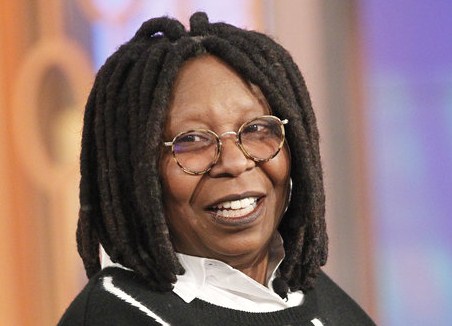African Americans who hate to be called African Americans

BY SOUMANOU SALIFOU
Black American actress, comedian, singer, social critic and television personality Whoopi Goldberg recently re-ignited the depressing debate about black Americans who don’t like to be identified as African Americans. During the January 5, 2016 episode of The View, a show that she hosts on national television, the actress said in response to a joke by a co-show host about people leaving the United States if Republican presidential candidate front-runner, Donald Trump, wins the presidency:
“My mother, my grandmother, my great-grand folks, we busted ass to be here. I’m sorry. I’m an American. I’m not an African American, I’m not a chick American, I’m an American!”
The actress’ comments followed similar remarks made one year earlier by one of her fellow-show host, Raven Symone, also an actress.
Whoopi’s remarks triggered a fiery debate on social media, leading Essence, the popular white-owned magazine for African American women, to conduct an online survey asking visitors to their site to weigh in. At the time of this writing: 59% of the people surveyed agree with Whoopi, 24% don’t agree, and 16% have checked the “It’s complicated” box.
As I wrote in my comments posted on Essence‘s website, it’s a free country, and anybody has the right to be identified as he/she sees fit. However, Whoopi Goldberg and Raven Symone’s reluctance to be identified as African Americans is a slap in the face of history. The claim is all the more shocking in light of the fact that DNA testing and proven genealogical research methods used in the context of a program broadcast on American public television (PBS) had helped determine that Whoopi’s ancestry is 92% West African (specifically Guinea-Bissaun) and only 8% European. In fact, one need not look beyond her beautiful looks to know that African blood flows in her veins.
You may also want to read: Tracing ancestry is not easy for African Americans
People are identified as Indian Americans, Irish Americans, etc., in reference to their ancestry. If Whoopi Goldberg, a smart woman, knew that black slaves contributed immensely to the building of this great nation of ours (by helping build the economy very early on, later by fighting in the Civil War, by building the White House as free labor, among other things), I am sure she would proudly embrace her ancestry as have Barack Obama, Oprah and millions other brothers and sisters who, I dare say, know better. Despite my limited knowledge of Whoopi, I consider her too racially-proud to say that she’s uncomfortable in her skin like other black Americans who have made a similar claim.
You may also want to read: Wilfred Gray’s thirst to bond with mother Africa
One of the respondents to the Essence survey justified the rejection of her African ancestry by saying: “My skin is brown, my nationality is American. Next question.” But, in fact, being identified as African American has nothing to do with being dark-skinned or brown-skinned. It has to do with what boat your ancestors came on. Unfortunately, the boat of ignorance is huge, leading light-skinned African Americans to feel superior to dark-skinned ones, and some of us to reject our history.
You may also want to read: Ambassador Erieka Bennett, a die-hard bridge-builder
In the Republican party’s response to President Obama’s State of the Union Speech on January 12, South Carolina governor, Nikki Haley, along with the heavy political stuff, proudly mentioned her Indian ancestry, saying: “I am the proud daughter of Indian immigrants who reminded my brothers, my sister and me every day how blessed we were to live in this country.” Part of my deep admiration for the late governor of New York, Mario Cuomo, has to do with his breath-taking eloquence and the way he wore his Italian ancestry on his sleeves. To my knowledge, we black people are the only tribe in America whose members—hopefully in the minority—reject their heritage. Why? The answer probably belongs to the multi-disciplinary field of history and psychology. Not exactly my area of expertise.
________________________
Soumanou Salifou is the founder/publisher/CEO of “The African Magazine,” the premier African magazine published in the United States, dating back to 1994.

